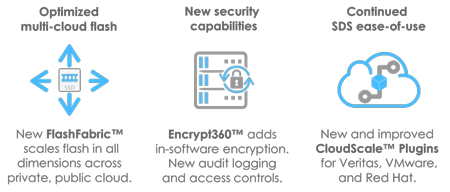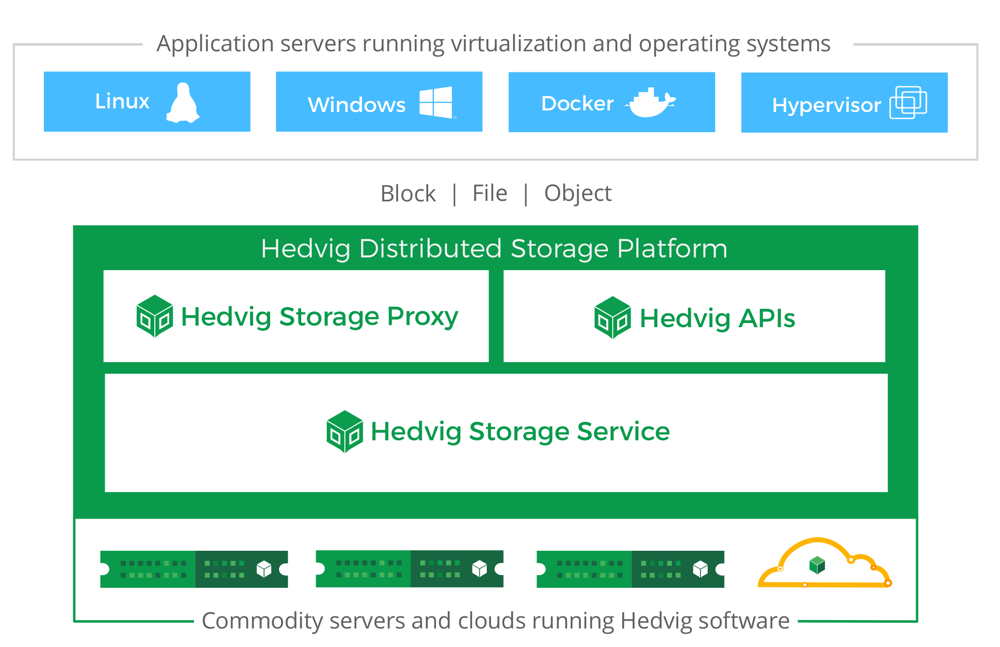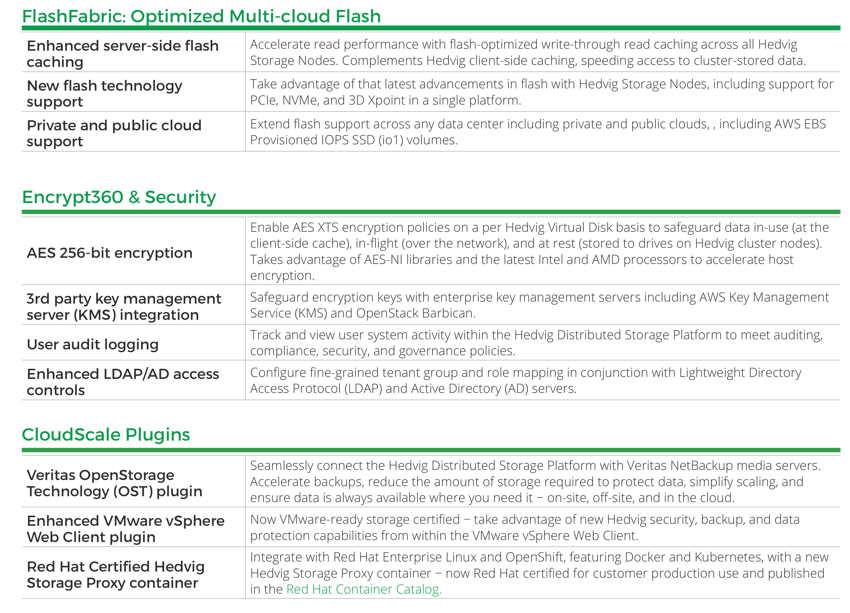Distributed Storage Platform Version 3.0 by Hedvig
Software-defined storage platform release with suite of caching technologies, security capabilities, and end-to-end integrations
This is a Press Release edited by StorageNewsletter.com on August 31, 2017 at 2:32 pmHedvig, Inc. announced the availability of the Distributed Storage Platform version 3.0, a release of its software-defined storage (SDS) platform.

Innovations in 3.0 include enhancements to its suite of caching technologies, advanced security capabilities, and end-to-end integrations.
These 3.0 capabilities enable customers to store and protect virtualized, containerized, and backup workloads from a single platform.
“We’ve seen a sea change in customer requirements since we released the Hedvig Distributed Storage Platform two years ago. Enterprises require a platform that simplifies their IT infrastructure and operations,” said Avinash Lakshman, CEO and founder, Hedvig. “As more mainstream enterprises adopt software-defined storage, they seek technology that plugs into their existing architecture, natively protects against growing cybersecurity and compliance mandates, and future-proofs their infrastructure with innovations in flash technology.“
As more businesses adopt software-defined storage and multi-cloud infrastructure, the flexibility to accommodate primary and secondary data in a single platform becomes critical. Flash-caching, encryption, auditing, multitenancy, certifications and plug-ins found in Distributed Storage Platform 3.0 offer organizations an elastic storage system that runs on-premises, in the public cloud, or both.
FlashFabric improvements lower cost and complexity of adopting all-flash data center
The FlashFabric is a comprehensive suite of flash caching technologies that optimize performance in the company’s clusters running both on-premises and in public clouds. In 3.0, the firm adds improvements to the platform’s all-flash caching, including more advanced auto-tiering and read cache capabilities. Customers architecting all-flash data centers or those interested in adding all-flash resources in public clouds can take advantage of NVMe, 3D Xpoint and other flash innovations without having to add complex, proprietary hardware. Simply add new commodity servers or public cloud instances configured with the latest flash technologies and the company’ solution will automatically consume the resources and optimize performance based on application needs.
Security features including Encrypt360 reduce risk of hacking and ransomware
Enterprise cyber and malware attacks are on the rise, resulting in a growing need for enhanced security and encryption built directly into storage infrastructure. Firm’s Encrypt360 delivers a native, in-software approach to protecting data throughout its entire lifecycle, encrypting data that’s in-use, in-flight, and at-rest. Based on the firm’s distributed systems architecture, data encryption starts at the host level and carries all the way through the backend, distributed cluster nodes. It supports a variety of key management systems, including AWS, and enables customers to select a 256-bit AES encryption policy on a per-volume basis. Also to the 3.0 release are advanced auditing and multi-tenancy access control mechanisms that, combined with Encrypt360, ensure customers can securely meet IT compliance and regulations while adopting hybrid and multi-cloud architectures.
CloudScale plug-ins simplify integration of SDS into existing infrastructure and operations
The company adds to its existing Docker and OpenStack CloudScale plug-ins with improved plug-ins for Veritas Technologies LLC, VMware, Inc.,and Red Hat, Inc. CloudScale plug-ins provide pretested, validated options to ensure SDS is easier to use and operate.
The company’s CloudScale plug-ins now include:
-
Veritas OpenStorage Technology (OST) plug-in. Firm’s OST plug-in ensures existing Veritas customers can connect NetBackup to Hedvig as a deduplicating backup target.
-
Enhanced VMware plug-in. The existing company’s vSphere Web Client plug-in has achieved VMware-ready storage certification and adds new security, backup, and data protection capabilities.
-
Red Hat Certified container. A firm’s Storage Proxy container is now Red Hat certified for customer production use and published in the Red Hat Container Catalog. This certified container supports Red Hat Enterprise Linux (RHEL) and OpenShift featuring docker and Kubernetes.
“LKAB is one of the world’s largest producers of iron ore. We generate a significant amount of IoT data from geophones throughout our mines. We deploy Hedvig as a hyperscale backup solution to store and protect all that IoT data,” said Robert Pohjanen, IT architect, LKAB. “The NetBackup OST plug-in in the 3.0 release improves the performance and efficiency of Hedvig as our backup solution. We’re also excited to use the new encryption capabilities as LKAB moves towards a hybrid cloud architecture.“
Information about the company’s Distributed Platform Version 3.0, tune into webinar, taking place on September 7, 2017 at 10:00am PT.
Click to enlarge
Resource:
Blog















 Subscribe to our free daily newsletter
Subscribe to our free daily newsletter

